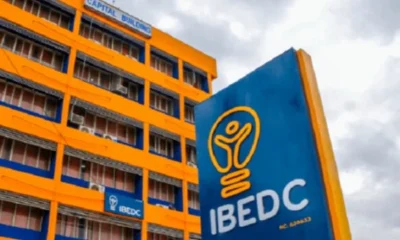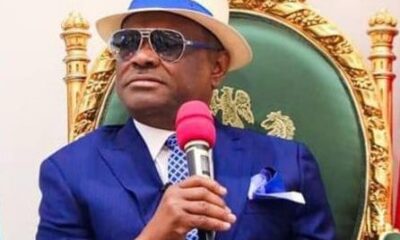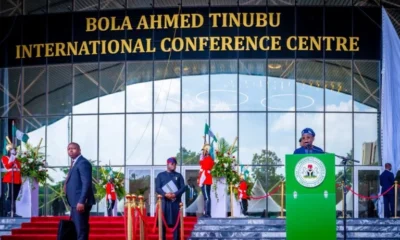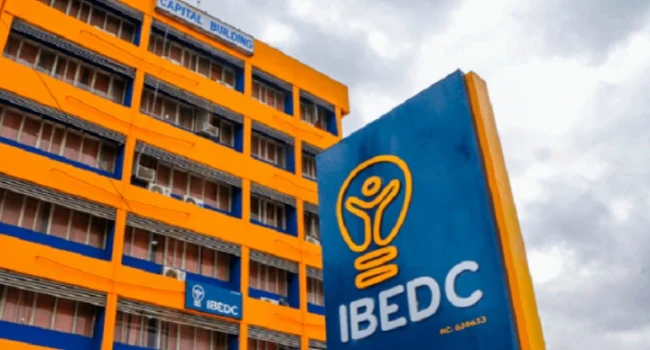A multi-dimensional roadshow, comprising power bikers, activation rigs, and mobile advertising vans, was spotted across cities in Lagos State on Wednesday with flashes of an appealing slogan: “A Greater Lagos Rising”. The overall activities formally flagged off the re-election campaign of Governor Babajide Sanwo-Olu.
In riverine communities, hundreds of residents rolled out branded canoes in a special sea show, traversing the Lagos waterways to kick off the All Progressives Congress (APC) governorship electioneering.
The events culminated in a press briefing held in Ikeja, where Gov. Sanwo-Olu and Director General of the APC Governorship Campaign Council, Sen. Ganiyu Solomon, unveiled the campaign assets, including theme, color, and font branding.
Represented by Commissioner for Information and Strategy, Gbenga Omotoso, the Governor declared: “I am running on records; get ready for more.”
Sanwo-Olu said the theme of his second term campaign reinforced the continuity of his achievements in the first term. He said the idea of “Greater Lagos Rising” captured the passion and resilience of young creative citizens toiling to change the story of the State in music, movies, fashion, sports, manufacturing, and technological innovations.
The Governor said renewal of his mandate would further strengthen his administration’s resolve to scale up the efficiency of his development blueprint, known as THEMES Agenda, and unlock more socio-economic opportunities for hardworking residents.
He said: “Our campaign assets capture the audacity and spirit of Lagos in the rising of the city. The campaign assets are not some forms of self-adulation but fitting credit to the contributions of hardworking Lagosians, especially the youth, to the height Lagos has attained today. This campaign is not about me and my team alone. It is a tribute to all our youths who are doing amazing works to put Lagos on the global map. Renewing our mandate will represent people’s confidence in the collective progress we have made in the last three and half years against all odds.
“There is no doubt we are running on records. Evidence of our achievements abounds to discerning minds. Lagos is on the threshold of history as the first sub-national to deliver on a mass rail system; the Blue Rail Line is being test run ahead of commissioning and operations in the coming weeks. The Red Line is also scheduled for commissioning in the first quarter of 2023. We have completed and inaugurated 16 housing schemes within this first term. Our people are confident that we can do a lot more after they witnessed the commissioning 62 fire-fighting vehicles in a day to keep our citizens safe.
“This administration, within three years, upgraded two tertiary institutions to degree-awarding schools to raise human capital and prepare our young people for future jobs. Our Government trained 18,000 teachers under the Eko Excel Initiative. People who benefited from Ilera Eko Health Insurance scheme now see the proof that something is changing in the State. Honest residents know that Imota Rice Mill and the Lekki Deep Sea Port are incontrovertible proofs that a greater Lagos is indeed rising and unfolding before their eyes. Now, imagine what we can do with additional four years.”
The Governor explained the essence of yellow as dominant colour in the campaign materials, noting that the shade symbolised the energy, youthfulness, enthusiasm, optimism and happiness which are common expressions among Lagos residents.
The brand colour also came with a mix of foggy, signifying warmth, transformation, freedom and fun said to be hallmarks of the State.
All the colours used, Sanwo-Olu said, collectively evoked the resilience of the State to remain on the path of progress, despite being hit by global COVID-19 pandemic and the violence resulting from ENDSARS protests.
He said: “Our campaign will be reinforcing the energy, remarkable audacity and unbroken resilience of our people. Rising is a proof of growth. Our actions in the last three and half years have blended into our Greater Lagos mantra, with the State rising and transforming before our very eyes.
“When we say a ‘Greater Lagos is Rising’, we are drawing attention of our citizens to the positive changes taking place all over the State, including growth of our economy, breath-taking rebuilding of Lagos and the renewal of hope in citizens. Let us write a new history.”
Solomon said the party would be rolling out campaign materials to all nooks and crannies of the State to showcase the achievements of the Sanwo-Olu administration, urging residents of Lagos to support the effort to renew the Governor’s mandate.
Commissioner for Economic Planning and Budget, Sam Egube, said Sanwo-Olu’s re-election bid was proper. He noted that Lagos rose in its challenging period, saying: “Mr. Governor never allowed those challenges to bring Lagos on its knees.”
Egube said the simultaneous development of two rail lines, building of a deep seaport and delivery of international standard bus stations were evidence that Greater Lagos had started to rise.

 BIG STORY2 days ago
BIG STORY2 days ago
 BIG STORY3 days ago
BIG STORY3 days ago
 BIG STORY22 hours ago
BIG STORY22 hours ago
 BIG STORY3 days ago
BIG STORY3 days ago
 BIG STORY2 days ago
BIG STORY2 days ago
 BIG STORY3 days ago
BIG STORY3 days ago
 BIG STORY2 days ago
BIG STORY2 days ago
 BIG STORY3 days ago
BIG STORY3 days ago
























